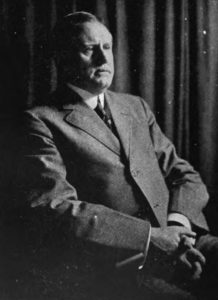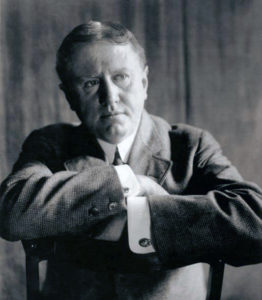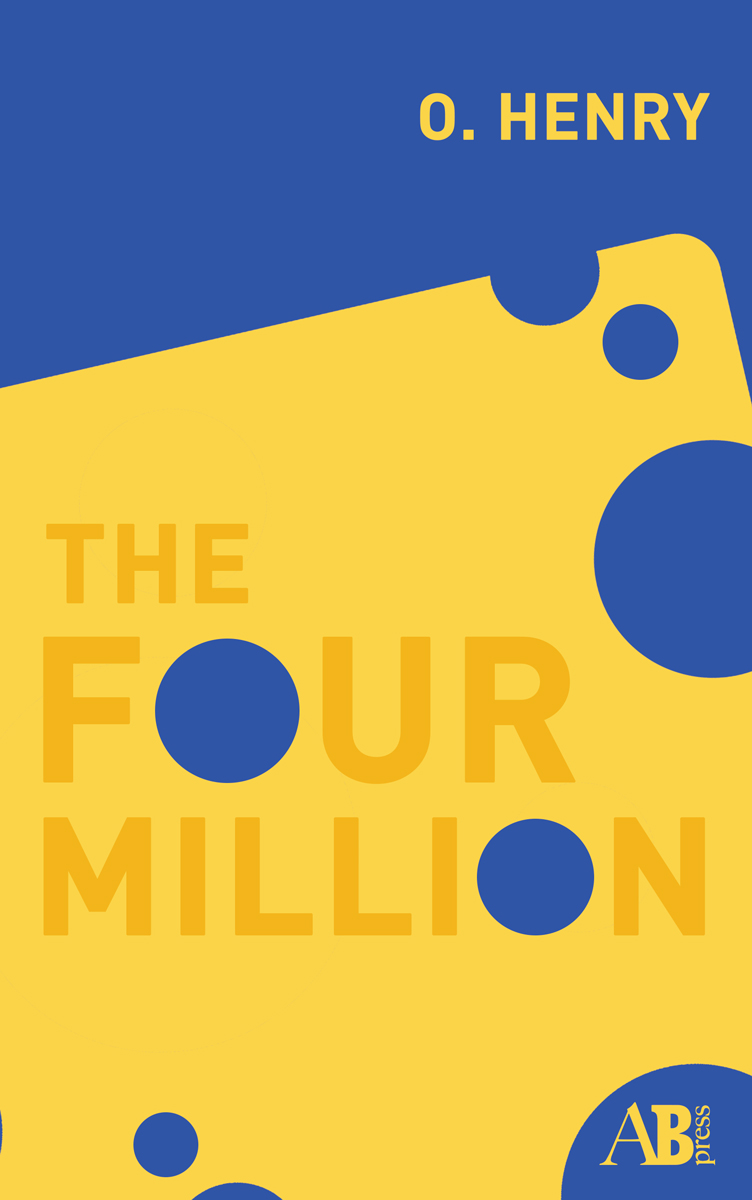Biography

O. HENRY was the pen name of William Sydney Porter (1862 – 1910). He was born in Greensboro, North Carolina. His great uncle had been governor of North Carolina, and Porter’s upbringing (he was raised in the home of his paternal grandmother) was law-abiding and middle class. His mother died when he was three, as did one of his two brothers; his father, a physician, was obsessed more with inventing a perpetual motion machine and drinking whisky than tending to his remaining children.
A moderate and commonplace early life included developing a useful if modest artistic skill. His Aunt Lina tutored him throughout his older teenage years and encouraged a voracious reading habit, especially of the classics (One Thousand and One Nights and Burton’s Anatomy of Melancholy were his favourites). Porter worked in his uncle’s drugstore from the age of sixteen and qualified as a licensed pharmacist just before his nineteenth birthday.
When his schooling was finished, outdoor work on a ranch was sought to alleviate a persistent adolescent cough, and he settled in the warm climate of Austin, Texas from 1884. Here he gained a surprising reputation as a broncobuster, took on work for a drug company and a cigar store, and enjoyed a full social life. He started to write short stories in his spare time, mostly westerns, but he destroyed the manuscripts. His writing was encouraged by his new wife, Athol Estes, a consumptive with whom he had eloped in 1887.
He was employed for four years as a survey draftsman and cartographer for the Texas General Land Office, but he resigned when his political promoter lost office; this experience provided ammunition for future stories such as Georgia’s Ruling and Buried Treasure. This was followed by work as a teller in the First National Bank of Austin Bank, but this did not end well: casual administration and porter’s lackadaisical attitude led to his suspension, dismissal, and, once the federal auditors became involved, a charge for embezzlement. Before his indictment he sought to earn a wage as a satirical journalist; he contributed stories and cartoon sketches to his own satirical start-up, The Rolling Stone, and then for The Houston Post. But in an impulsive moment of desperation whilst changing trains to attend his trial, he determined to flee to New Orleans and then on to Honduras, where at that time there was no extradition treaty. Here he made friends with the larger-than-life Al Jennings, a notorious train robber who became a silent film star and later an attorney; Porter’s story Holding Up A Train was inspired by this meeting. Jennings, too, wrote a book in 1921 about their encounter, Through the Shadows, which recalled also the time they had spent coincidentally in prison, and a much later reconciliation in New York.
Porter returned to the United States in 1897 after three years absence, to comfort his wife who was near death. At his subsequent trial he offered no defence and was found guilty of embezzling $854.08; he was committed to a five-year sentence in the Ohio State Penitentiary. The qualifications he held as a pharmacist meant that Porter had an easy time in jail. He was released early for good behaviour in July 1901, and returned to his daughter and his in-laws to Pittsburgh.
He had written short stories for much of his life, but during his stay in the Penitentiary he applied himself to the craft with enthusiasm. He published at least 14 stories in magazines under several pseudonyms; the first of these stories, The Miracle of Lava Canyon, was published in McClure’s Magazine, September 1898. His manuscripts were placed through the wife of a fellow imprisoned banker, a deceit to mask his criminality. He moved to New York in early 1902 at the request of his publisher to become a full-time writer. He was prolific, and it is estimated that he he wrote 381 stories in eight years, with a clockwork regularity at first: he contributed weekly to the New York World Sunday Magazine, for example, with such a consistency of high standard that he was able to build rapidly a dedicated readership. The shame of his guilty past encouraged his name change and he maintained a low public profile after he was released from prison. The derivation of his new name is not clear; there are many explanations offered.
His first book, Cabbages and Kings, was published in 1904. Its stories are set often in a midwestern American town that might have been anywhere in Texas, and a few other of its tales were set in coastal Latin America towns that might have been anywhere in Honduras. (The phrase “banana republic” comes from two of the stories published in this volume, The Admiral and Two Recalls). From 1904 he turned to write mostly of New York, his new locale and a verdant playground of plot and humorous mischief.
The Four Million was Henry’s second collection of short stories, published in 1906, and it contains many of his most anthologised tales – The Gift of the Magi, After Twenty Years, The Skylight Room, The Furnished Room and The Cop and the Anthem. Its title was a response to a newspaper editorial by Ward McAllister, a self-appointed grandee of the New York ‘knickerbocracy’ who was hostile to the drift of outsiders to the city (outsiders perhaps like O. Henry), especially those from the midwestern states. McAllister had claimed that there were only 400 people in New York worth knowing, a limited number of those who mattered in its high society: “If you go outside that number,” he warned, “you strike people who are either not at ease in a ballroom or else make other people not at ease.” Henry was a true populist; he held that everybody was of interest, and his book set out to prove this. He delighted especially in New York’s hackneyed aspects, and he cast a roving eye with playful intent to search out its humour. He would heighten a demotic tale seemingly with little effort, and flood it with romance and colour. Fascinated by the city’s twists and turn, he remarked that he could live a lifetime in each of its streets. He referred to New York as “Bagdad-on-the-Subway,” and 99 of the 115 stories he published in 1904 and 1905 – perhaps the hightide of his brief career as a writer – deal with some facet of the city’s life.
The wide drama of his stories may appear as virtuosic, but was taken most often from his own experience, though when he had started writing for The Houston Post, he was to be found loitering sometimes in hotel lobbies to hunt for subject matter. Two motifs typically contained in his work are the imposter (or someone in disguise), and the idea that fate shapes a life above all else. These two motifs in many ways sum up Henry’s own exploits: ordinarily he applied himself with impetuosity, laxity or poor judgement, and his stories reflect his own life’s casual abandon; moreover, he offers a carefree observation of the general human condition. He found much to rejoice in the unfortunate and jinxed, the traumatic, compromised or melodramatic situation, and he was especially adept at describing the ingenious ways in which people often escape from them. But unfailingly in a natty, precise and witty vein, and usually with an exaggerated or twisted denouement.
Critics tended to deride his stories, yet many of them live on in the popular imagination and have been the basis for successful film or television adaptation. A Retrieved Reformation, for instance, became a successful Broadway play in 1910 and was filmed three times before 1928, the last by Metro-Goldwyn-Mayer as its first sound film with dialogue sequences. In 1918, the O. Henry Memorial Award was founded, to be awarded each year to the author of America’s best judged short story.
 O. Henry’s second marriage proved to be difficult. Sarah Lindsey Coleman had been a teenage sweetheart with whom Porter had corresponded when he had settled in New York; he met her again on a return visit to North Carolina. She was a writer and was to publish a novella of their romance, Wind of Destiny. But by now his heavy drinking affected both how he conducted his life and his health; his writing suffered also, and he was not so productive in his later years. Most of the thirty or so stories that date from this period tend to relate nostalgically even wistfully to his youth, and focus upon the confusions of antebellum culture in the South. Porter died in June 1910 from cirrhosis of the liver, diabetic complication and an enlarged heart.
O. Henry’s second marriage proved to be difficult. Sarah Lindsey Coleman had been a teenage sweetheart with whom Porter had corresponded when he had settled in New York; he met her again on a return visit to North Carolina. She was a writer and was to publish a novella of their romance, Wind of Destiny. But by now his heavy drinking affected both how he conducted his life and his health; his writing suffered also, and he was not so productive in his later years. Most of the thirty or so stories that date from this period tend to relate nostalgically even wistfully to his youth, and focus upon the confusions of antebellum culture in the South. Porter died in June 1910 from cirrhosis of the liver, diabetic complication and an enlarged heart.



